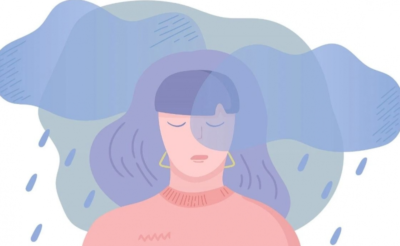 Attention-Deficit/Hyperactivity Disorder (ADHD) and depression are two distinct mental health conditions that can coexist and present unique challenges. While ADHD is commonly associated with difficulties in focus, impulsivity, and hyperactivity, depression manifests as persistent feelings of sadness, loss of interest, and low energy. When these conditions intersect, individuals may face additional complexities in managing their mental well-being. This blog aims to shed light on the relationship between ADHD and depression, explore their common symptoms, potential causes, and offer practical strategies to support individuals who navigate this intersection.
Attention-Deficit/Hyperactivity Disorder (ADHD) and depression are two distinct mental health conditions that can coexist and present unique challenges. While ADHD is commonly associated with difficulties in focus, impulsivity, and hyperactivity, depression manifests as persistent feelings of sadness, loss of interest, and low energy. When these conditions intersect, individuals may face additional complexities in managing their mental well-being. This blog aims to shed light on the relationship between ADHD and depression, explore their common symptoms, potential causes, and offer practical strategies to support individuals who navigate this intersection.
ADHD is a neurodevelopmental disorder characterized by challenges in executive functions, such as attention regulation, impulse control, and organization. On the other hand, depression is a mood disorder that affects one’s emotions, thoughts, and behavior. Both conditions can impact various aspects of life, including relationships, academic or professional performance, and overall quality of life. It is important to note that ADHD and depression often coexist, with research suggesting that individuals with ADHD are at a higher risk of developing depression. The relationship between these conditions is complex and multifaceted. While ADHD may contribute to feelings of frustration and difficulty in meeting societal expectations, depression can arise from the ongoing challenges and struggles associated with ADHD.
When ADHD and depression coexist, individuals may experience overlapping symptoms that exacerbate their difficulties. Common symptoms include persistent feelings of sadness, low self-esteem, difficulty concentrating, irritability, restlessness, and a sense of worthlessness. The challenges faced by individuals at this intersection can be overwhelming, making it crucial to recognize the interplay of these conditions and seek appropriate support. The causes of ADHD and depression are not fully understood, but various factors contribute to their development. Genetics, brain chemistry imbalances, environmental factors, and life events can all play a role. Additionally, the chronic stress associated with managing the symptoms of ADHD can contribute to the development of depression.
To navigate the challenges posed by ADHD and depression, a comprehensive and holistic approach to mental well-being is essential. Here are some strategies that individuals can consider:
- Seek professional support: Consult with mental health professionals who can provide an accurate diagnosis and recommend appropriate treatment options.
- Develop coping mechanisms: Engage in stress-reducing activities like exercise, meditation, and mindfulness to alleviate symptoms and promote mental resilience.
- Establish a support system: Cultivate a network of supportive friends, family, or support groups who can provide understanding, empathy, and encouragement.
- Practice self-care: Prioritize self-care activities, such as maintaining a balanced diet, adequate sleep, and engaging in hobbies or activities that bring joy and fulfillment.
While ADHD and depression can present unique challenges when coexisting, it is possible to find effective strategies and support for managing these conditions. By adopting a holistic approach that encompasses self-care, professional guidance, and a supportive network, individuals can work towards improved mental well-being and a better quality of life.

